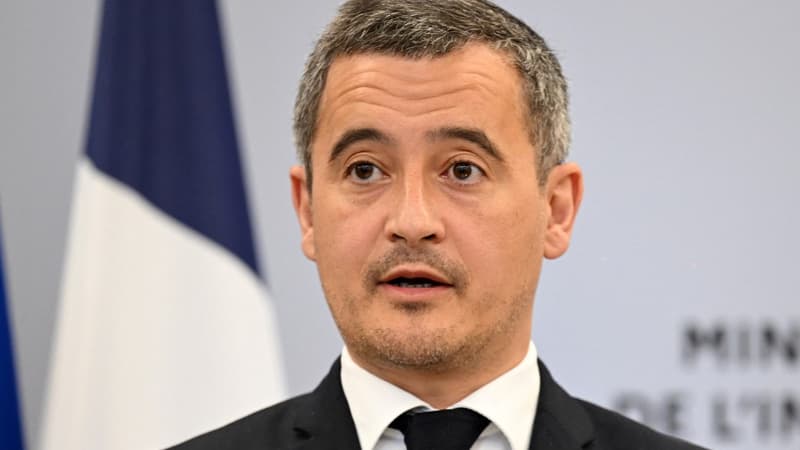Expel more foreigners who represent a “serious threat”, reform the asylum system, regularize certain undocumented workers, or even introduce a French test for the granting of residence permits. The government presented its immigration bill on Wednesday, of which here are the main axes.
Priority deportees
This is the main part of the bill towards which half of its twenty-seven articles converge: facilitating expulsions, firstly those of foreigners already convicted “for crimes or misdemeanors punishable by ten years or more in prison.” The Government wants to “reduce the scope of protections against decisions on the obligation to leave French territory (OQTF) when the foreigner has committed acts that constitute a serious threat to public order, public safety or security of the State”.
“There can no longer be (…) protection for foreigners who have committed acts of serious crime”, including those who arrived in France before the age of 13, the Interior Minister Gérald Darmanin summed up on Wednesday at the end of the Council of Ministers where the text was presented.
Although the OQTF execution rate, the subject of recurring controversy, was below 10% in 2021, the Government wants to simplify the litigation of foreigners by reducing the possible appeals against expulsions from twelve to four.
The “participation of foreigners in crime represents (…) more than double their representation in the population,” the Government highlighted. On the other hand, the executive did not retain for a time a mentioned measure, which provides for the issuance of an OQTF to asylum seekers as soon as their file is rejected in the first instance.
Reform of the asylum system
Always with the objective of deporting more efficiently, but also of speeding up procedures, a “structural” reform of asylum is planned.
The State wants to generalize the use of a single judge in the National Court of the Right to Asylum (CNDA), which essentially governs collegiately.
The text also provides for the creation of territorial chambers for the right of asylum, while the CNDA currently has its headquarters only in the Paris region.
“France Asylum” spaces must be created, bringing together agents from the French Office for Immigration and Integration (Ofii), the French Office for the Protection of Refugees and Stateless Persons (Ofpra) and the prefectures. The objective: to shorten the procedures in “several weeks”.
Regularization of undocumented workers
Emblematic measure that guarantees the “balance” of the text according to the government, the executive wants to allow undocumented workers present in the territory for three years to obtain a “live work” residence permit, valid for one year. To do this, the worker must prove that they have been employed “for at least eight months” during the last two years in one of the trades with a shortage of labor, whose list, obsolete, must be updated.
The worker who benefits from it will be able to request a multi-year residence permit if he has an indefinite contract and if he has an elementary command of French, added the Minister of Labor, Olivier Dussopt.
On the terms of this measure, which crystallizes the opposition of the right, Gérald Darmanin reiterated his openness to proposals for adjustments, in particular to the idea of ”quotas” to limit their scope. Regularization requests related to this title may in any case be submitted directly by the worker, while the current procedure places him in a situation of “dependency” on the employer.
The text also provides for the creation of a multi-year residence permit “talent – medical and pharmaceutical professions”, aimed at qualified professionals outside the European Union who work “in a public or private non-profit health, social or medical-social institution “. establishment”. This degree, which has a maximum duration of four years, concerns doctors, midwives, dental surgeons and pharmacists.
The government also wants to allow asylum seekers to work as soon as they arrive in France when it is “highly likely, given their nationality, that they will obtain international protection in France”, thus exempting them from a six-month deficiency period. The list of affected countries must be fixed by decree.
A “minimum level of French”
The executive wants to condition the first issuance of a multi-year residence permit to mastering a “minimum level of French”, where now a simple participation in language training is required.
“We are going to introduce a compulsory French test for all long-term residence permits, 270,000 people are interested per year”, stressed Gérald Darmanin.
Source: BFM TV


